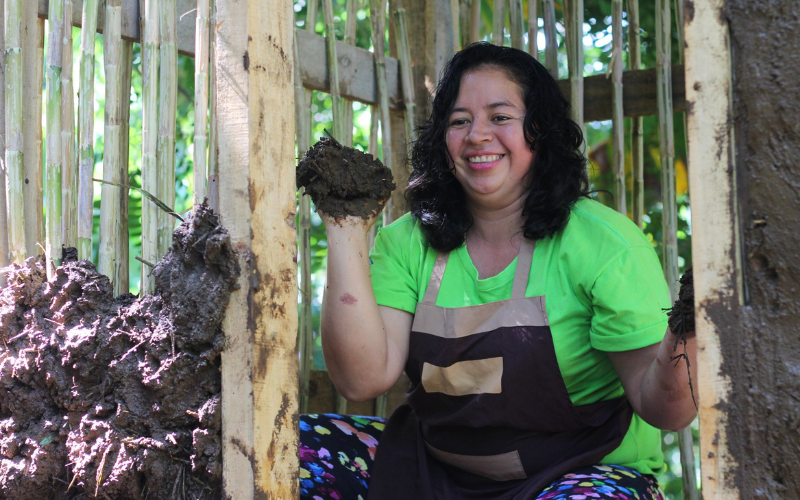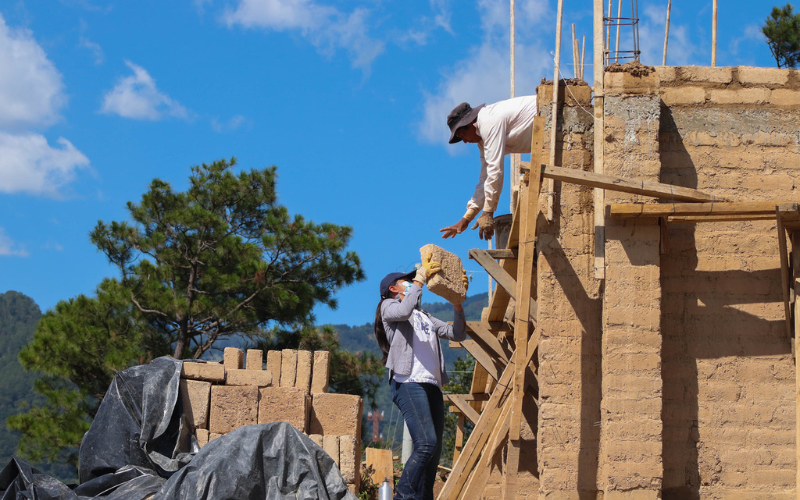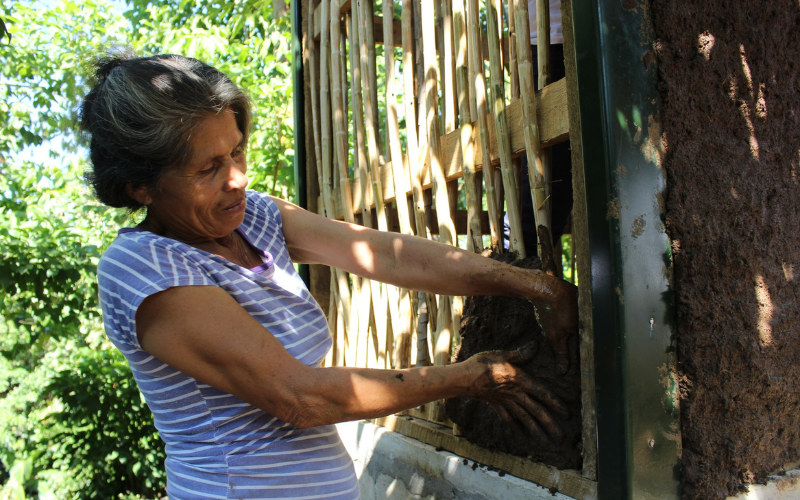Rural El Salvador is plagued by poverty, housing shortages, and natural disasters. With no government social housing policy or structural responses, residents are mostly left to build their own homes from earth, which are vulnerable to earthquakes, floods, and disease. Water scarcity, pollution, and rising living costs worsen the situation.
The Salvadoran Foundation for Development and Minimum Housing (Fundación Salvadoreña de Desarrollo y Vivienda Minima - FUNDASAL) is an award-winning non-governmental and non-profit organisation founded in 1968. It collaborates with rural and urban communities to improve where they live, and increases their skills and capabilities, paying special attention to women and young people.
This award-winning rural development project has built and improved over 640 homes and community centres, introduced dry toilets, environmentally-friendly kitchens, rainwater harvesting systems and organic vegetable gardens. It has increased access to water and sanitation and made the local environment much healthier. In this way living conditions and access to food have vastly improved for the 50,484 people who live in the four rural municipalities where the projects were carried out.










